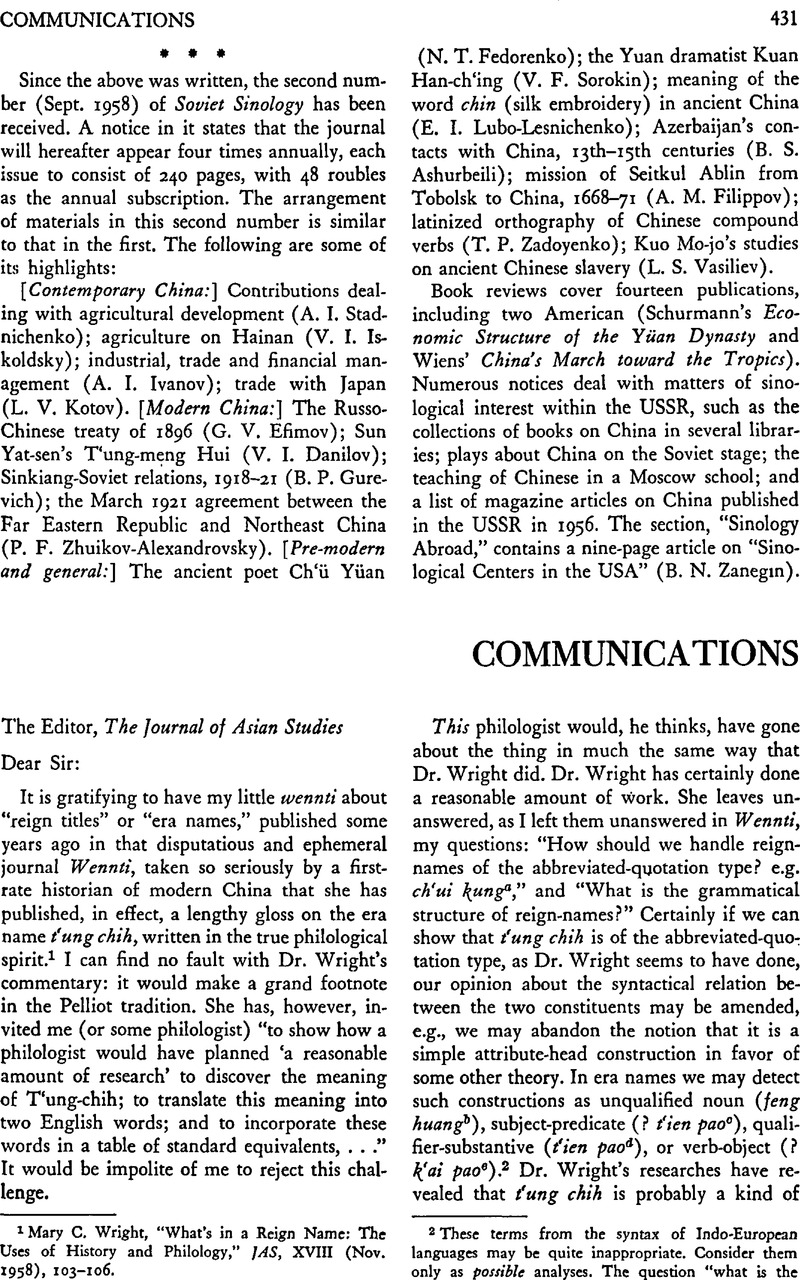Article contents
Communications
Published online by Cambridge University Press: 23 March 2011
Abstract

- Type
- Communications
- Information
- Copyright
- Copyright © The Association for Asian Studies, Inc. 1959
References
1 Wright, Mary C., “What's in a Reign Name: The Uses of History and Philology,” JAS, XVIII (Nov. 1958), 103–106CrossRefGoogle Scholar.
2 These terms from the syntax of Indo-European languages may be quite inappropriate. Consider them only as possible analyses. The question “what is the structure of this form?” should be kept distinct from the question “what is the structure of the English translation of this form?” For instance, Chinese book titles function as substantives, but some appear to be predications, e.g., Shih wu chi yüanf or Pen ts'ao shih ig. Official titles are often of this type, e.g., chiang chünh or t'ung chung shu men hsia p'ing chang shui.
3 Nominalized verb plus resultative complement: “uniting for order.”
4 Partially explained in my “War Elephants in Ancient and Medieval China,” Oriens, 10 (1957), 289CrossRefGoogle Scholar.
5 Not explained by me anywhere.
6 Professor Dubs raised precisely this issue in Wennti, No. 4.
7 In the case of chih, for instance, I feel sure that Dr. Wright does not really demand that I include the traditional and basic connotation of “put the waters in their channels,” in reference to the supposed hydraulic accomplishments of the Great Yü, even though this sense remains alive for many educated readers of Chinese.
8 For non-antiquarians: the great seventh century scholiast.
- 1
- Cited by




